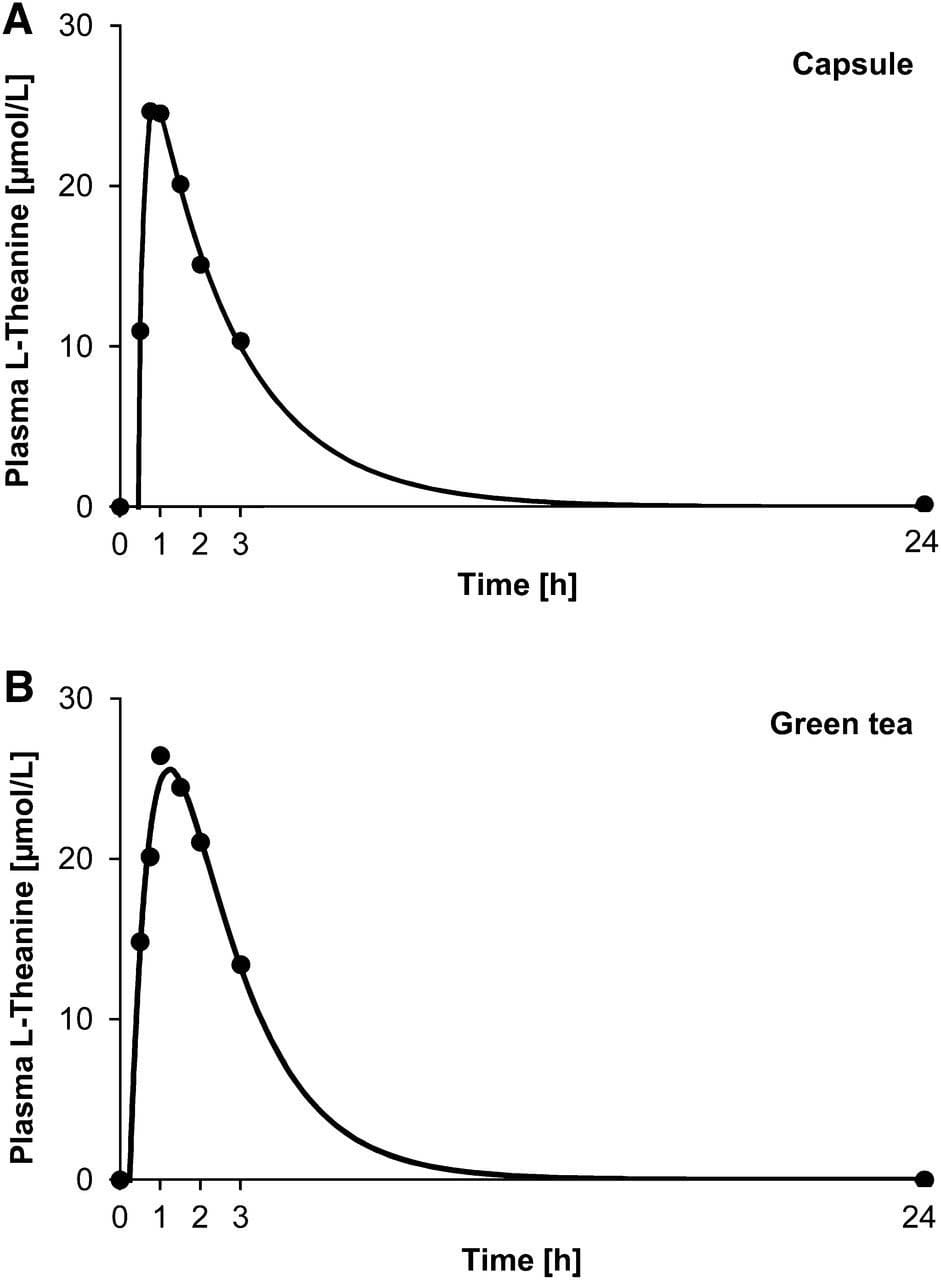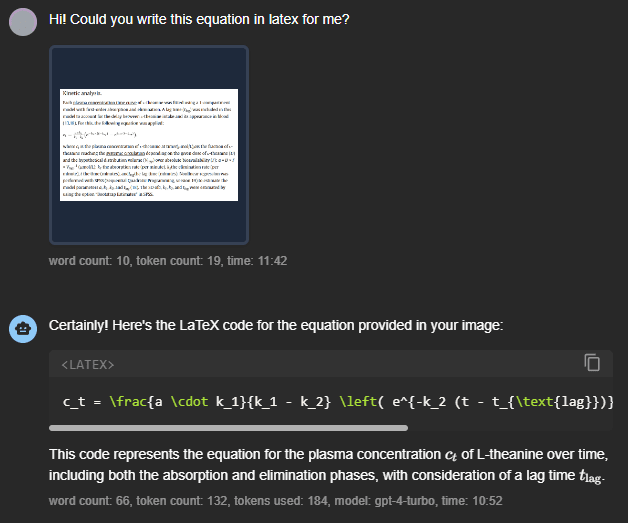I knew someone who (simplified) couldn't use anxiolytics because their entire motivational structure was built on panic. If you chilled them out they couldn't get to work on time, and would have rapidly gotten fired. I wonder how theanine's effect on cognition/motivation changes based on an individual's motivational structure.
I think this doesn't apply to me: My model is that I lack energy in the morning, and theanine just makes me more tired.
I responded well to caffeine in another experiment.
I've personally gravitated towards adding hibiscus to regular tea for the boosted vasodilation and thus calming effect. Also seems to be good long term for blood pressure.
I have mild ADHD, which while not usually an issue in clinical practise, made getting through med school very hard until I was prescribed stimulants. Unsurprisingly it's designed for people who are both highly intelligent as well as conscientious.
Ritalin, which is the only good stim available here, is almost intolerable for me even at the lowest available doses and longer acting formulations. It causes severe palpitations and anxiety, and I feel like absolute shit when it starts to wear off.
I tried a bunch of stuff to help, including things I'm embarrassed to admit, but I suffered for years until the serendipitous discovery that Earl Grey helped immensely. After consideration, I tried green tea and found it helped too, and now I'm confident that it's the l-theanine that's doing the heavy lifting, as normal tea or coffee only make things worse.
It's made my life so much more bearable, and I strongly endorse it to anyone who has a need for being less anxious or happens to be on stimulants.
Neuroscientist Andrew Huberman uses and recommends theanine at bedtime to make it easier to get to sleep. I do, too. Theanine in pill or powder form, not from tea.
That seems better! I mostly took it in the morning, and I'm a night owl, so I sometimes felt becoming sleepier. Though I didn't track this enough to be certain.
Edit: I found the post usefwl, thankmuch!!
Mh, was gonna ask when you were taking it. I'm preparing to try it as a sleep-aid for when I adjust my polyphasic sleep-schedule (wanting to go fm 16h-cycles potentially down to 9h) bc it seems potentially drowsymaking and has much faster plasma decay-rate[1] compared to alts. This is good for polyphasic if not want drowsy aft wake.
The data in [1] concerns 100mg tablets, however, and a larger dose (eg 400mg) may be longer. The kinetic model[2] they use will prob be good estimate of plasma concentrations even if adjust dose.
Questions is whether it's good estimation for duration of action in the brain, esp given that it's "single-compartment model" (the blood is one compartment, and the brain is another). My heuristic for whether plasma T predicts brain T is whether the molecule v easily passes the BBB (as melatonin does), since then I can guess that the curve for the brain will look similar to the curve for the blood, offset slightly down and to the right.
- ^
Typical concentration-time curve of plasma ʟ-theanine of one participant after intake of 100 mg ʟ-theanine via one capsule (A) or 250 mL green tea (B). Circles represent measured concentrations of ʟ-theanine. The line represents the modeled plasma concentration-time curve by the use of the 1-compartment model.
— Kinetics of ʟ-Theanine Uptake and Metabolism in Healthy Participants Are Comparable after Ingestion of ʟ-Theanine via Capsules and Green Tea, , 4 - ScienceDirect - ^
- ^
Getting a tweakable python model for it was nontrivial after 35m of trying, so i'll prob j wing it w 200mg 1h pre bedtime and do 3h sleep, and adjust bon feelings. ig the primary variable that determines how alert i feel upon waking up is getting the sleep-cycle timing right, and planning my wake-up routines (lights & text-to-speech-model as alarm) for j after I've done REM-sleep[4].
- ^
While I probably would feel alert if waking up in middle of REM-sleep (after emerging from deep), I want to avoid that bc studies show bad effects from targeted deprivation of REM (leaving other phases untouched).
Data point (not RCTs, more vulnerable to placebo):
- Theanine before bed -> wake up fewer times over night (previously a big problem for me, now pretty minor, theanine is only one reason of several)
- Theanine before stressful appointments -> noticeably more chill at appointments (but not as good as Halcion)
I've mostly heard people talking about l-theanine as something to complement caffeine rather than to take by itself.
This is interesting!
I would have guessed that the process of making tea is somewhat relaxing and almost all the "Contentment and Relaxing" properties of tea were due to placebo. Especially since culture seems to tell us that teas are a way to relax. This seems like solid evidence that L-Theanine is good for relaxing without the placebo effect. It comes at a productivity cost, but if relaxation is your goal maybe it is good and not too harmless!


—Kamal Patel, “Caffeine”, 2023
See also Examine, Wikipedia and Gwern.
Sitiprapaporn et al. 2018 test the effect of an unspecified quantity of L-theanine via Oolong tea on meditation on 10 university students (non-randomized, it seems). Data collected via EEG and indicates statistically significantly more alpha waves during meditation (although it is unclear how long the meditation was).
This paper is bad. The english is so horrendous it feels like I'm having a stroke while I'm reading it, but that would be fine if they were good at reporting methods, which they are not (missing amounts of L-theanine and duration of meditation, they also mention reading earlier in the article, which I assumed was the control activity, but it doesn't come up again?). Also they report differences between scores, not effect sizes, and some figures are screenshotted images from a Windows Vista clustering application.
Examine agrees on the cognitive effects of l-theanine (if not on meditation specifically):
Bill Willis, “Theanine”, 2022
Although I'm confused about the increased α-waves in "otherwise healthy patients"‽
Additionally, it notes that memory was slightly increased:
Bill Willis, “Theanine”, 2022
Experiment B: Self-Blinded RCT
This time I explicitely divided my meditation into a concentration part (first 15 minutes) and a mindfulness part (last 30 minutes).
Notes during consumption:
Ran the experiment from 2023-06-22 to 2023-09-28, sometimes with pauses between samples.
I use the same statistical techniques as in the caffeine experiment, and start, as usual, with my predictions about the content of the pill:
This is not great. In fact, it's slightly worse than chance (which would be about -0.693). Not a great sign for L-theanine, and, in fact, it gets worse. I use the generalized and compacted code from the last experiments to get the other results, and they don't point a rosy picture for L-theanine:
It worsens productivity and creativity (though not quite statistically significantly, but it's on the way there), but at least it improves my mood somewhat (though those results, besides contentment, might as well be due to random chance). No clear effect sizes with the flashcards either.
So a hard pass on L-theanine, I think. Maybe it's better when combined with caffeine?
Higher is better. ↩︎
Whether higher or lower values are better here is not clear. ↩︎
The value of higher or lower values here is not clear: Do we want to spend more time per flashcard, or are we content with fast but sloppy performance? ↩︎